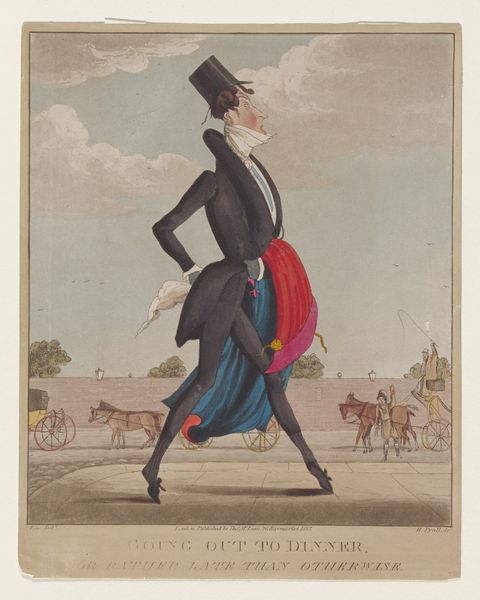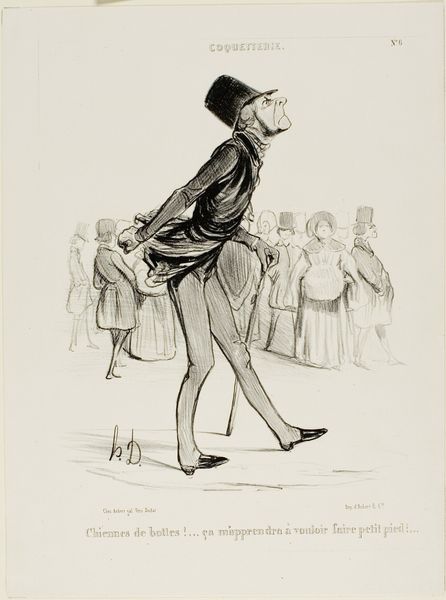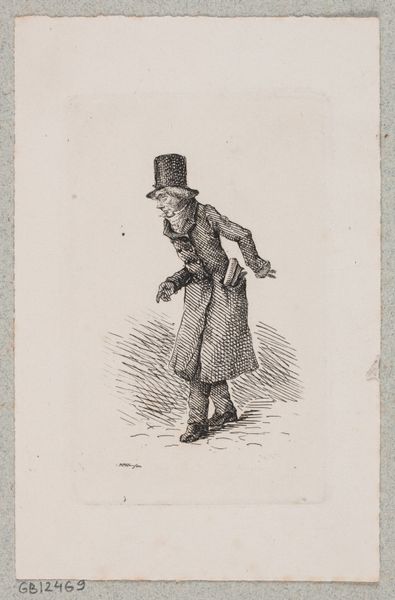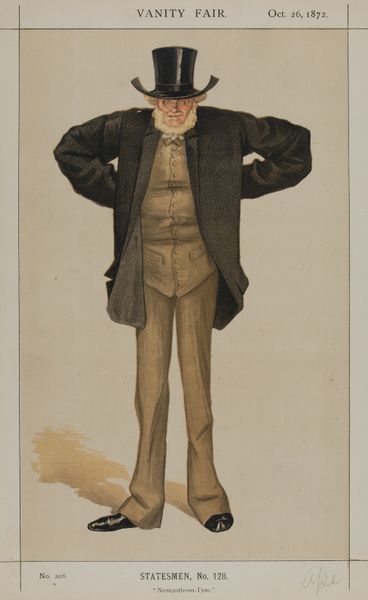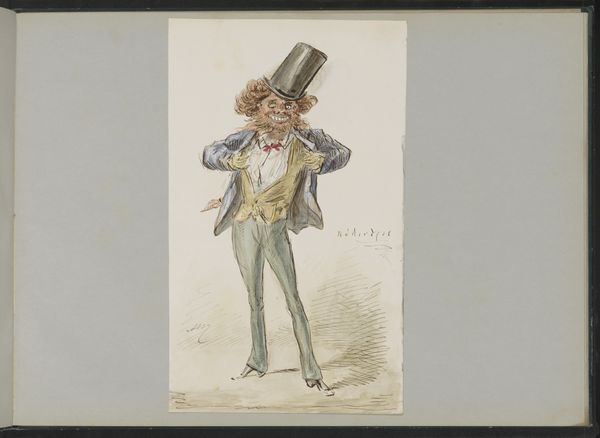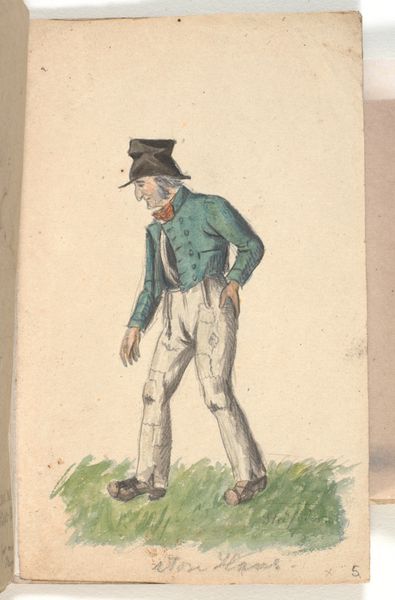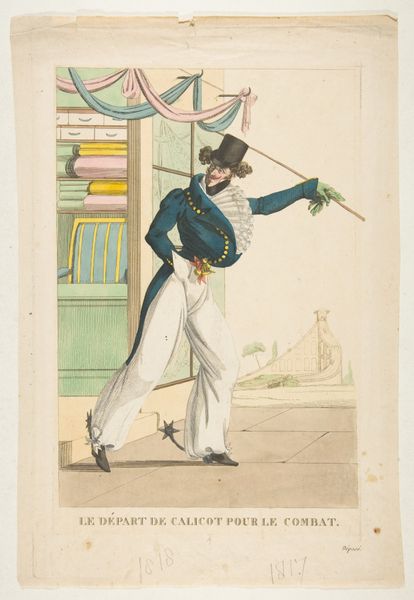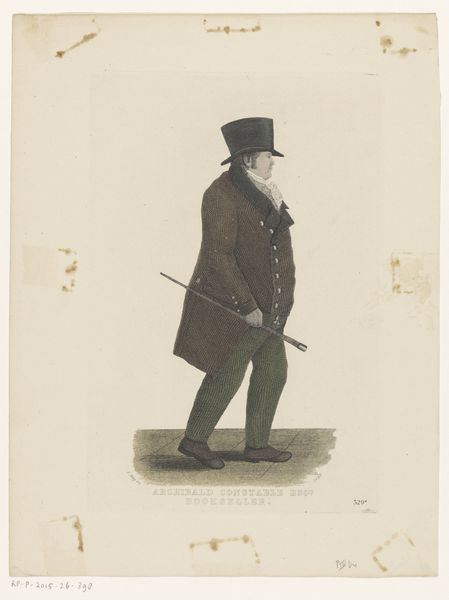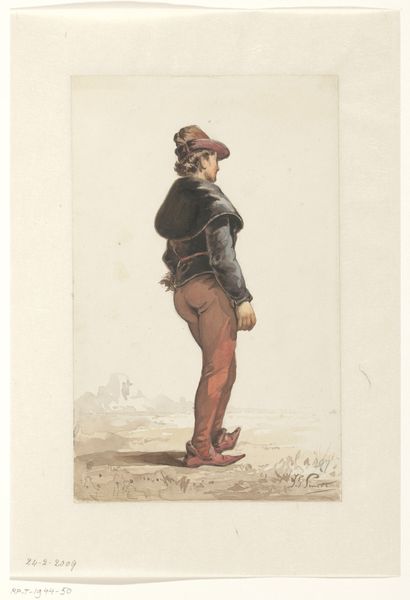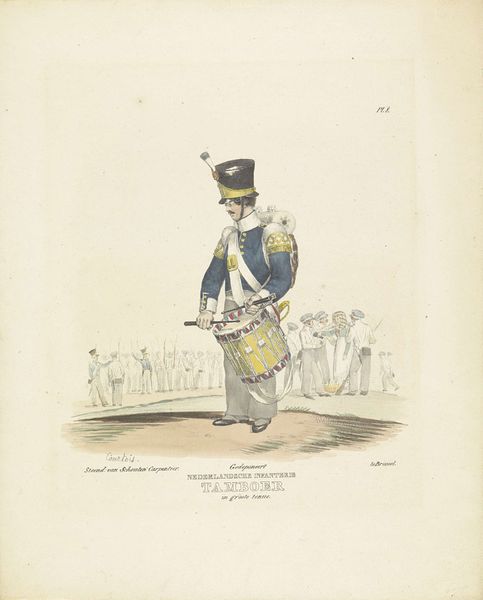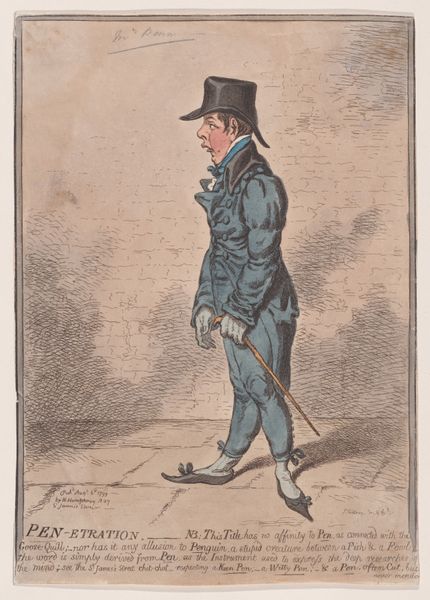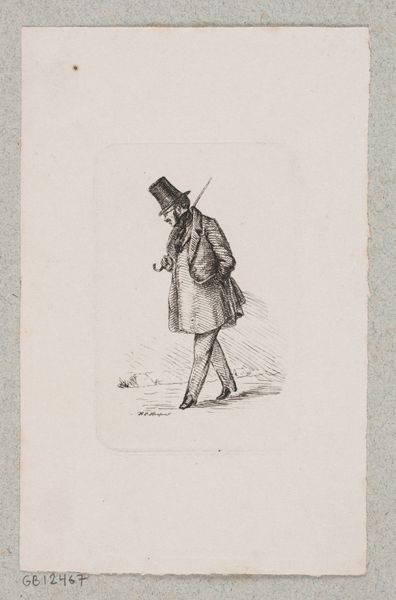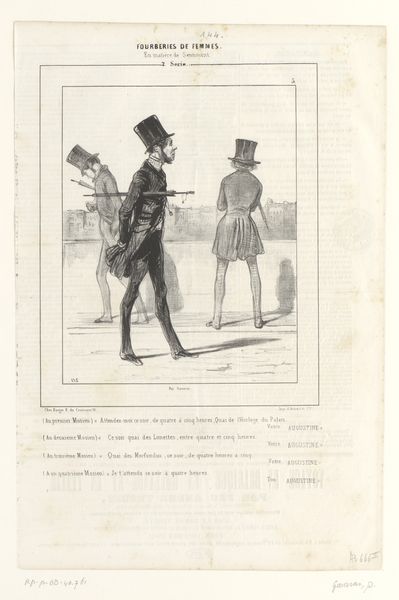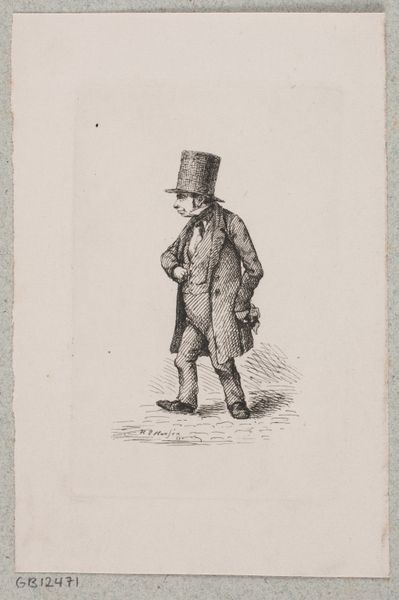
lithograph
#
lithograph
#
caricature
Dimensions: height 354 mm, width 273 mm
Copyright: Rijks Museum: Open Domain
Editor: Here we have "Man in Shoes Too Small," a lithograph by Honoré Daumier created in 1840, currently at the Rijksmuseum. What strikes me is the stark contrast between the elongated, almost comical figure and the subtle details of the crowd in the background. What do you see in this piece? Curator: Indeed. The exaggerated form, specifically the emphasis on line and shape, serves as the primary focus. Note the angularity of the figure, created by the contrasting colors in the garments. Consider how Daumier guides our eyes with this rhythmic dance. How does that angularity, further expressed through linear quality and limited modeling of light, inform its expressiveness? Editor: It makes the character seem uncomfortable and affected, as if he is deliberately putting on a show. The sharp angles contribute to that feeling of forced elegance. Curator: Precisely. It’s through Daumier's specific application of shape, color and line that the critique becomes visually sharp. The foreground subject looms above a blurry sea of figures whose shape is much more softly articulated. What is the relationship between these two formal choices? Editor: So, the blurriness and the sharper rendering in the foreground helps to put focus on the foregrounded character. I now see the choice of materiality helps set apart the figure from those in the background to put focus on the artist’s theme of caricature. Thank you! Curator: You've begun to decode it as pure expression. Excellent!
Comments
No comments
Be the first to comment and join the conversation on the ultimate creative platform.
